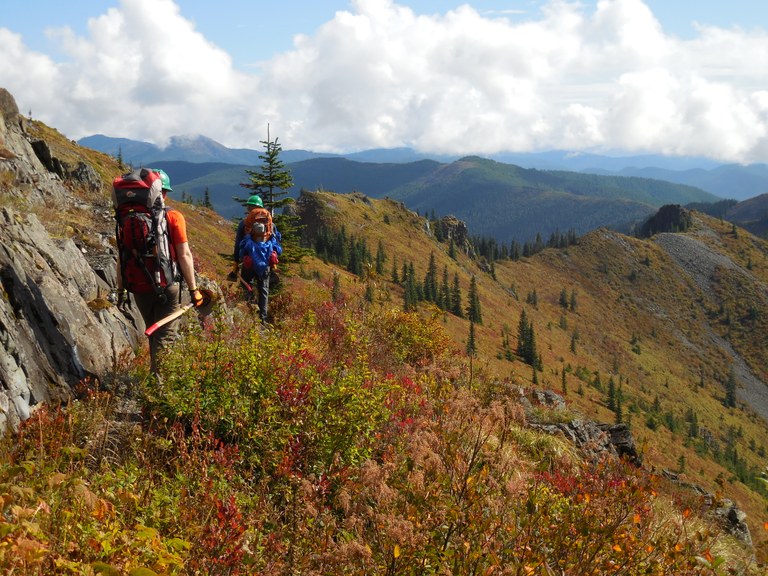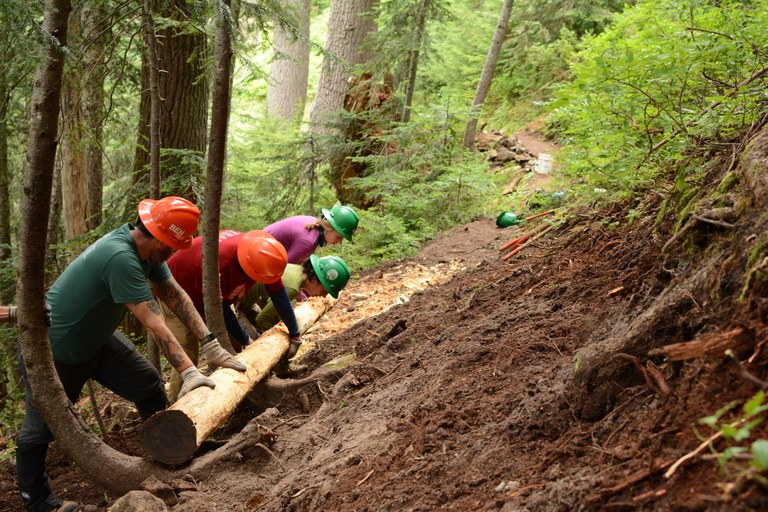 Washington Trails
Association
Washington Trails
Association
Trails for everyone, forever
Backcountry Response Teams (BCRTs) combine backpacking and trail work for one unforgettable week of volunteering.

Heading into a BCRT on the Starway Trail. Photo by Anna Roth.
On a BCRT, you'll help your crew complete a trail project that is beyond the reach of a one-day work party. Whether you're clearing downed trees off a remote section of trail, restoring washed-out tread or building a backcountry bridge, you'll be amazed at what you can accomplish by the end of the trip!
Led by a skilled WTA crew leader, you'll gain trail maintenance skills while working alongside fun people. And since you camp in the backcountry, you'll be able to spend multiple nights in a quiet camp setting.
BCRTs vary in length depending on the project. Most are scheduled for 3 to 5 days. Some trips involve a short hike to a basecamp with minimal elevation gain, while others involve hiking as many as 10 or more miles each day with significant elevation gain.

Many hands make light work on a BCRT. Photo by Jessi Loerch.
Backcountry Response Teams are intended for experienced backpackers in good physical condition who can bring and carry all the gear and food required for multiple nights on the trail. BCRTs are open to anyone 18 years and older.
Most folks on BCRTs have prior experience doing trail work. We encourage first time volunteers to join a day work party before signing up for a BCRT.
Questions about a typical day on a BCRT, what to pack or what the crew is like? Get the answers in our FAQ.
A small number of our BCRTs have been designated as "Strenuous" due to the challenging nature of the hike and the work. It could be that the hike to the worksite is especially long or steep or the type of trail work is more advanced or taxing.
To sign up for a Strenuous BCRT, you will apply to the trip. Upon your application, staff will thoroughly review your Backcountry Experience and Medical History forms. Please complete these forms thoroughly and document your experience accurately. Staff may follow up with a phone call prior to acceptance to request more information.

Volunteers climb up a steep section of trail on a BCRT. Photo by Ryan Ojerio.